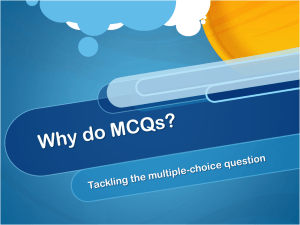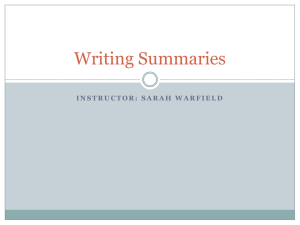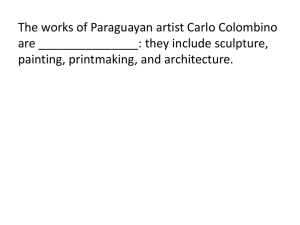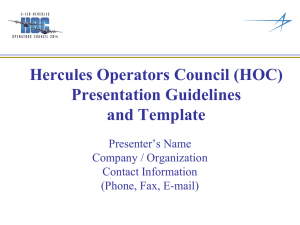"Return of the Rangers" powerpoint
advertisement
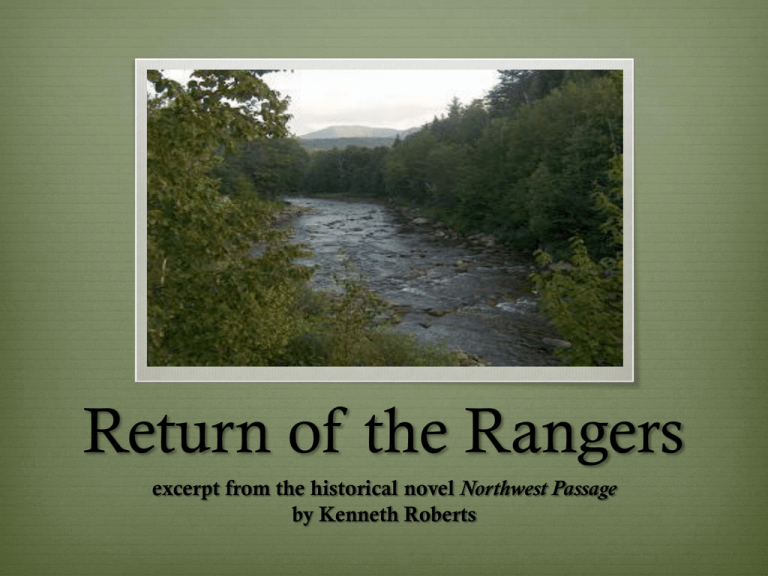
Return of the Rangers excerpt from the historical novel Northwest Passage by Kenneth Roberts Kenneth Lewis Roberts (December 8, 1885 – July 21, 1957) was an American author of historical novels. Roberts worked first as a journalist, becoming nationally known for his work with the Saturday Evening Post from 1919 to 1928, and then as a popular novelist. Born in Kennebunk, Maine, Roberts specialized in Regionalist historical fiction. He often wrote about his native state and its terrain, also depicting other upper New England states and scenes. For example, the heroes of Arundel and Rabble in Arms are from Kennebunk (then called Arundel), while Langdon Towne, the chief character of Roberts's Northwest Passage, is depicted as being from Kittery, Maine with friends in Portsmouth, New Hampshire. Robert Rogers (November 7, 1731--May 18, 1795) was an American colonial frontiersman. Rogers served in the British army during both the French and Indian War and the American Revolution. During the French and Indian War Rogers raised and commanded the famous Rogers' Rangers. The Northwest Passage is a sea route through the Arctic Ocean, along the northern coast of North America via waterways amidst the Canadian Arctic Archipelago, connecting the Atlantic and Pacific Oceans. The various islands of the archipelago are separated from one another and the Canadian mainland by a series of Arctic waterways collectively known as the Northwest Passages or Northwestern Passages. The Ammonoosuc River 1. Describe the general situation of the men at the beginning of the excerpt. They are trying to reach help for the men who are stranded without food, but they themselves are also starving and must go through the inhospitable wilderness as they try to return. 2. Name one of the two animals that Langdon shoots for the men to eat. He shoots squirrels and a partridge. 3. What does Rogers do while Langdon and Ogden hunt? He burns down trees to use for a raft. 4. What physical obstacle must they work to overcome in this portion of their journey? They must safely get over a set of falls they are approaching. 5. What is their biggest personal difficulty in trying to overcome this obstacle? They are all starving and very weak. The Lower Falls of the Ammonoosuc 6. What do the woodcutters do for Major Rogers and his men? The woodcutters give them some food and take them back to the fort. 7. Who will lead the soldiers back to the mouth of the Ammonoosuc? Major Rogers will lead the soldiers back. Understanding Character What can the reader understand about the character based on the passage? “Even Rogers was supine for a time— though not for long. He got to his knees. ‘This is no place to stay,’ he said. ‘We can’t stay anywhere without a fire. We’d freeze. There’ll be wood on the bank below the falls.’ He stood up, swaying. ‘That’s where we go next,’ he said. ‘Come on.’ ” Understanding Character What can the reader understand about the character based on the passage? “Rogers was covered with scars—red scars, blue scars, white scars. Some were bullet wounds, while others looked as though made by the claws or teeth of animals.” Understanding Character What can the reader understand about the character based on the passage? “‘We’ll have to eat,’ Rogers said. ‘If we don’t get something in us we can’t stick on the raft.’ ‘What raft?’ Ogden asked. ‘We’ll get a raft,’ Rogers said. ‘I don’t know how,’ Ogden said. ‘If I try to swing a hatchet, I’ll cut off my legs.’ ‘Don’t worry about that,’ Rogers said. ‘I’ll get the raft if you’ll find the food.’ ” Understanding Character What can the reader understand about the character based on the passage? “When we returned to the falls, all six trees were down, and under each burned two fires, so to separate them into proper lengths for a raft. Rogers sat at the edge of the stream, his forehead resting on his drawn-up knees, and beside him lay Billy, asleep.” Understanding Character What can the reader understand about the character based on the passage? “Those falls, I realized, hadn’t been out of his mind all day. That was why he had insisted on making the rope of hazel switches.” Understanding Character What can the reader understand about the character based on the passage? “‘Who’s in command of this fort?’ Rogers said. ‘We don’t know his name, Major,’ a soldier said huskily. ‘We’re strangers here.’ ‘Go get him,’ Rogers ordered. Three Provincials jumped together for the door at the end of the room, jostling and tripping in their haste.” Understanding Character What can the reader understand about the character based on the passage? “Rogers rose wavering to his feet, then straightened himself to his full height and seemed to fill the room. In a strained, hoarse voice he said: ‘Today! Today! Now! Can’t you realize there’s a hundred Rangers at the mouth of the Ammonoosuc, starving! Get men and pay ’em! Get all the settlers into the fort! Call ’em in! Drum ’em up! I’ll talk to ’em! Get started!’ Bellows stared at him wildly: rushed back to the door and shouted a name, adding, at the top of his lungs, ‘Assembly! Assembly!’ ” Understanding Character What can the reader understand about the character based on the passage? “‘No, we’ll see Lieutenant Stephens at Crown Point afterwards,’ Rogers said. ‘Now get me some beef—fat beef. I’m going back to Ammonoosuc myself.’ ” Understanding Character What can the reader understand about the character based on the passage? “‘No, we’ll see Lieutenant Stephens at Crown Point afterwards,’ Rogers said. ‘Now get me some beef—fat beef. I’m going back to Ammonoosuc myself.’ ”



